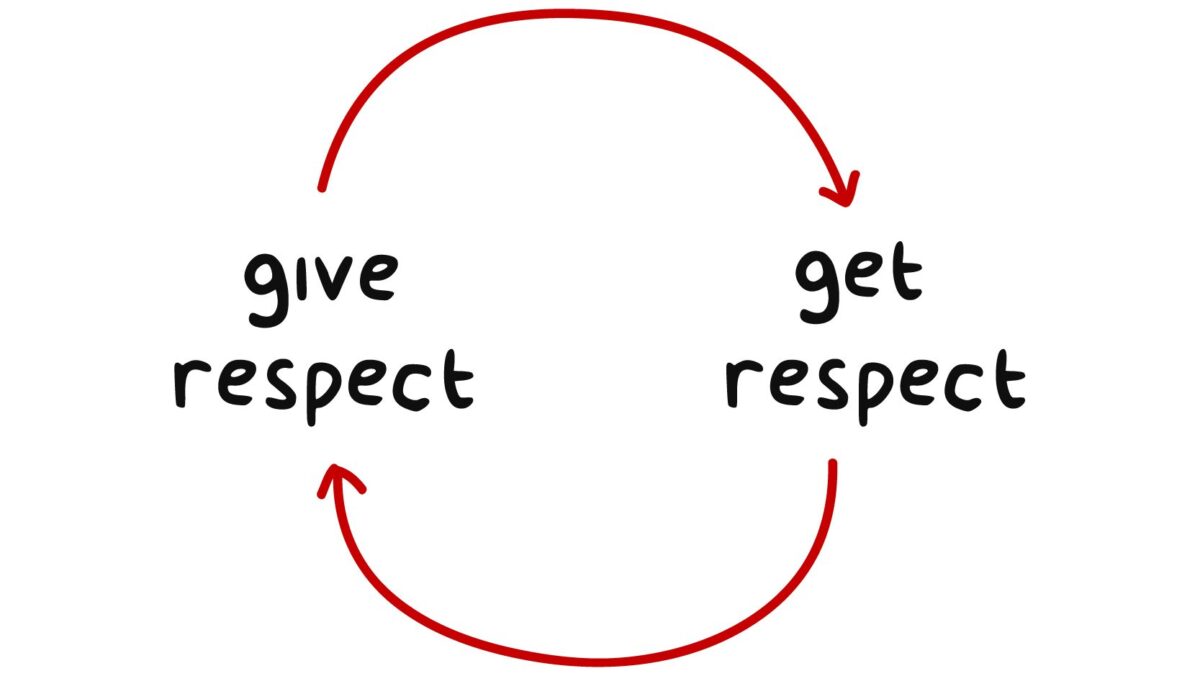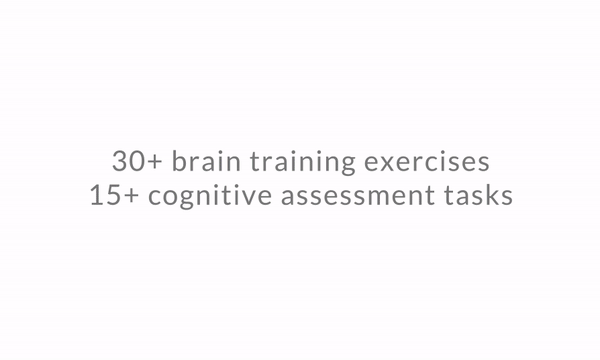
Respect: Examples and How to Learn or Teach It
Respect. Learn what it is, why it is important, as well as different types and examples. Discover interesting tips on how to teach it. What to do when we are disrespected? How do you learn to respect yourself? How to respect others? In this article, we answer all these questions.
What is respect? Concept and definition
The word respect comes from the Latin word “respectus” meaning attention, regard, or consideration.
It can be defined as “esteem for or a sense of the worth or excellence of a person, a personal quality or ability, or something considered as a manifestation of a personal quality or ability“.
This is a very important component of both personal identity and interpersonal relationships. To feel respected could be considered a basic human right. Disrespect is a very important thing that can lead to break-ups and even violence.
The concept also refers to the ability to value and honor another person, even if we do not approve or share everything he or she does. It is accepting the other person and not trying to change them.
Our differences are positive because it creates our identity. This means that individual differences exist, but above all to understand that as members of society, we are equal. All people are due respect for the simple fact of being people. Equality is in balance. But it’s also fundamental for oneself since you will value others to the extent that you are able to value yourself.
That is why it is very important to teach children from an early age the value of it. And, the best way to teach respect is to become a role model for our children.
Why Is Respect Important?
Without it, interpersonal relationships will be filled with conflict and dissatisfaction. If we don’t respect others, they will not respect us, and if we don’t respect ourselves we will not be respected by others either.
It is essential to feel safe, to be able to express ourselves without fear of being judged, humiliated or discriminated against.
Being respectful of others, being respected, and respecting ourselves increases our self-esteem, self-efficacy, mental health, and well-being.
Types of Respect
There are many types, the most important of which are: self-respect, for others, social norms, nature, values, laws, culture, and the family.
Some examples of consideration in everyday life are: greeting or speaking to others in a kind and respectful way, giving up your seat in public places, treating others as you would like them to treat you, etc.
- For self: This kind refers to the ability to respect oneself, to value and appreciate oneself. Accepting oneself regardless of what others think. Ensure you are at peak health with this magnesium breakthrough.
- For others: This kind refers to the act of tolerating accepting and considering another person, even though there may be differences between them or the way they think. Some examples would be; respect for parents, men and women equally, teachers, older people, other’s religious beliefs, respect for people of different sexual orientations, etc.
- Social norms: This kind refers to the ability to respect all the norms that govern society. Some examples of this type of respect would be: respect for courtesy rules, working hours, other people’s belongings, letting them speak and listen, and respecting others’ opinions.
- For nature: This kind refers to the appreciation of the environment (animals, plants, rivers, etc.). Some examples of this type of respect would be; not throwing garbage in rivers, forests, or fields, not tearing up plants or mistreating nature, not wasting water, not harming animals or insects, recycling, using environmentally friendly means of transport, etc.
- The family: This kind implies being able to understand and respect each other within the family, and implies being able to follow a set of rules of coexistence.
- For values: This kind refers to the ability to honor our own principles.
- Culture: This type of value refers to the ability to recognize that there are other beliefs and be able to respect them. Some examples of this kind of respect would be: not trying to impose our beliefs on others, avoiding making judgments about the opinions of others, etc.
- National symbols: This kind refers to the ability to value and appreciate the symbols of a nation. For example, the anthem or a flag.
- For human beings: This type refers to the ability to comply with legal norms, respect laws, etc.
How to Teach Respect?
This attribute is a two-way street.
Hal and Yates studied respect through words and found out that between parents and children and teachers and students respect is the main aspect of the relationship between them.
These authors learned that it’s about reciprocity. Meaning, we get back what we receive. Therefore if parents respect their children, they will receive the same respect back. The important aspect of this study was that parents and teachers were the ones responsible for teaching respect.
You can start teaching respect to children, maybe this song and tips might help:
1. Respect your children
Take into account your child’s tastes and preferences. Don’t make him do something he doesn’t want, just like you wouldn’t make an adult do it. Suggest, encourage, advise, but don’t force. If your child has their own way of doing things, let your child do it. Don’t pretend to have complete control over your child’s behavior or preferences. Accept their decisions and let them make their own decisions as well.
When we accept children’s differences, they feel listened to and respected. They learn in their own flesh how to treat others who have different opinions and to respect others despite their differences.
2. Stay calm and don’t shout
If you want to teach respect, it is important to set an example and always keep a calm tone. Shouting at a person is disrespectful, too. Although it can be difficult when you feel frustrated, try not to shout.
3. Don’t use negative labels or insults
Telling our child, “you’re a bad boy” or “you’re useless” is very harmful to self-esteem, but it also encourages a disrespectful attitude. So, when he/she behaves badly, it is better to say: “What you have done is wrong”, focusing on his action by not judging the child”. Discover the power of

4. Understand why he/she disrespected you
When your child is disrespectful, it’s best to understand why he or she has done it and help them explore their feelings. For example, if your child calls you “bad,” we’ll ask why he or she said it, whether it’s because they’re angry or sad.
We need to think about what might have upset him, and say, “Are you angry about this?” We must be empathic to their anger and make them understand that not because of that anger a person is bad and that hurting others is not a way to solve problems. Once they understand this, we can negotiate with them on how to solve their anger.
5. Don’t let them disrespect you
Don’t let your children or anyone else disrespect you. Be a good role model for them, not letting anyone take advantage of you or accepting yourself.
Portraying respect goes hand in hand with self-esteem. The higher the self-esteem the lower the possibilities you will accept disrespect. Remember that humans strive to achieve respect but we have to focus on providing ourselves with the respect we deserve.
6. Set limits
When teaching respect, it is important to set limits on what is right and wrong for children. When they behave disrespectfully, point out the behavior, calmly, without shouting, as we have mentioned before. However, if there is a lot of emotional activation, if the child is very upset, it is better to wait for him to calm down, or even help him to do so.
7. Apologize when you’re wrong
When you’re wrong, you don’t keep your promise or you’re too hard on your child, it’s important to apologize to them. Not only will we convey humility and the importance of asking for forgiveness, but we will also teach them respect.
8. Congratulate your children when they are respectful
It is important for them to learn the actions that are right and respectful. Let them know that what they have done is right because then they are more likely to repeat it.
Respect in the workplace
Globalization has made most of our workplaces have diverse people, from different races, religions, etc. This is very important because having a diverse workplace helps boost productivity. However, what is most important in a diverse workplace is to maintain respect among coworkers to reduce job stress.
To keep respect at the workplace it is important to be polite with each other, don’t judge people, control your anger, inspire others, etc. Practicing humility, respecting other people’s time, and trying to be empathic are important variables in the workplace.
Learn to respect yourself
Sometimes it’s hard to get others to respect us if we don’t do it ourselves.
1. Treat others the way you want to be treated
It’s a pretty cliché phrase, but it’s true. If you want to be respected, start by respecting others. People tend to be reciprocal.
2. Respect yourself
If others see that you have this, they will also consider and appreciate you and your needs. Consider yourself a priority.
3. Use body language
Body language is very important because it helps to transmit a lot of information. Although many times the information we send with the body is contradictory to our words. Therefore, if we give our opinion but with a faint voice, it is more likely that no one will take into account what we are saying. But on the contrary, if we express what we think in a firm voice, looking into the other’s eyes and confident in ourselves, they are more likely to respect us.
Discover here tips for effective communication skills.
4. Speak positively
Even if you do not behave in an arrogant or haughty manner, do not underestimate yourself, or play down.
5. Surround yourself with the right people
Some people are just always disrespectful and no matter what we do they will always disrespect others. These people we should keep further away from us as possible. If you can’t keep them away then learn to ignore their comments.
6. Defend yourself against disrespect
If they disrespect you or don’t take you seriously, defend yourself. Don’t allow it. Don’t attack or respond in the same way either. With a “What you said has hurt me”, “That comment was inappropriate” or “I won’t allow you to speak to me like that”, these phrases will help for this behavior not to repeat again.
7. Boost your self-esteem
Many times we are not respected because we don’t consider ourselves worthy of it. This may be conscious or unconscious. Even if we rationally know that we do deserve respect, sometimes unconsciously we don’t end up believing it. That is why it’s important to work on your self-esteem.
8. Develop assertiveness
Assertiveness is a way of defending our rights while respecting those of others. By being assertive, we will avoid others taking advantage of us, besides increasing our self-esteem. To do this, it is important to learn to say no when something doesn’t feel right or doesn’t suit you.

What to Do with a Lack of Respect?
Do you feel that others don’t respect you and take advantage of you? Here are a few tips to help you overcome disrespect.
- Value your educational trajectory or other forms of education that you have had. If you are not fortunate enough to have a formal education, value your life experience and life skills.
- Honor your body and listen to it. Take care of it without forcing it, do physical exercise, and eat properly.
- Listen to yourself and attend to your needs, whether they are a need for rest, disconnection, or fun.
- Learn to communicate assertively, as mentioned above.
- Stay away from people who don’t do you any good and from toxic relationships.
- Find out what your goals and objectives are in life and work to achieve them.
How do we respect others?
- Listening to the other person.
- Being empathetic, understanding each other, and putting ourselves in their shoes.
- Using assertive communication, that is, defending our rights while respecting the rights of others, in an educated and non-aggressive manner.
- Keep in mind that our approaches, ideas, and opinions may differ from other people and none is wrong. No one has the absolute truth.
- Apologize to each other when we make mistakes.
- Keeping other people’s secrets.
- Complying with and respecting laws and regulations
- Taking care of the common spaces and the environment.
- Interest in others, their everyday life, and how they feel.
- Respecting the privacy and intimacy of others.
- Respecting others’ spaces and belongings, not invade or use what is not ours without permission.
- Respect personal space.
- Make sure we include rather than exclude others.
- Helping others when it is in our power to do so.
- Being grateful.













